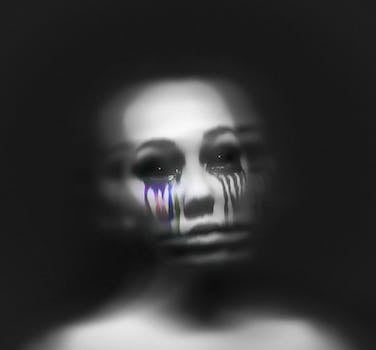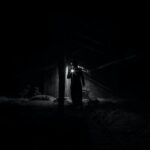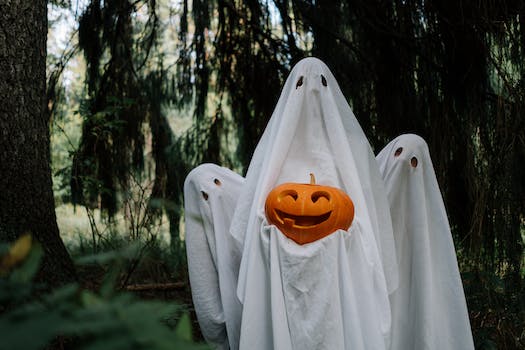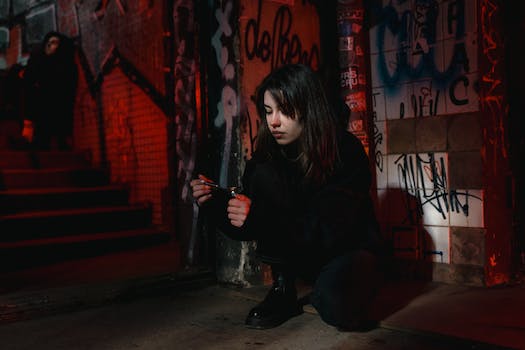Psychological horror films are a unique genre that delve deep into the human mind, exploiting our deepest fears and anxieties. These films go beyond the typical jump scares and gore, instead focusing on psychological manipulation and suspense to create an unsettling experience. In this article, we will explore the top 10 psychological horror films that are guaranteed to keep you on the edge of your seat and leave a lasting impression on your psyche.
- 1. Introduction
- 1.1. What are psychological horror films?
- 1.2. Why are psychological horror films popular?
- 1.3. The impact of psychological horror films on viewers
- 1.4. Exploring the psychological elements in horror films
- 1.5. Famous directors known for psychological horror films
- 2. Top 5 Must-Watch Psychological Horror Films
- 2.1. Film 1: Title
- 2.2. Film 2: Title
- 2.3. Film 3: Title
- 2.4. Film 4: Title
- 2.5. Film 5: Title
- 3. Psychological Horror Film Techniques
1. Introduction
Psychological horror films are a genre that aims to tap into our deepest fears and anxieties. Unlike traditional horror movies that rely on jump scares and gore, psychological horror films mess with our minds and leave us questioning our sanity. These films often use psychological and emotional manipulation to create a sense of unease and dread. In this article, we will explore the top 10 psychological horror films that are guaranteed to give you goosebumps and keep you up at night.
1.1. What are psychological horror films?
Psychological horror films are a subgenre of horror that aims to unsettle and disturb viewers by focusing on the psychological aspects of fear. Unlike traditional horror movies that rely on jump scares and gore, psychological horror films delve into the human mind, exploring themes of paranoia, anxiety, and the supernatural. These films often challenge the audience’s perception of reality, blurring the line between the real and the imagined. By tapping into our deepest fears and anxieties, psychological horror movies have the power to leave a lasting impact on viewers long after the credits have rolled.
1.2. Why are psychological horror films popular?
Psychological horror films have gained immense popularity in recent years, captivating audiences with their ability to delve deep into the human mind and evoke intense emotions. These films offer a unique and immersive experience, tapping into our deepest fears and anxieties. Unlike traditional horror movies that rely on jump scares and gore, psychological horror films focus on psychological elements such as suspense, tension, and the exploration of the human psyche. This genre of film often leaves a lasting impression on viewers, provoking thought and analysis long after the credits roll. In this article, we will explore the reasons behind the popularity of psychological horror films and discuss some of the top choices that every horror enthusiast should watch.
1.3. The impact of psychological horror films on viewers
Psychological horror films have long been a popular genre among movie enthusiasts. These films are known for their ability to elicit intense emotions and create a sense of fear and suspense in the minds of viewers. The impact of psychological horror films on viewers is a topic that has been extensively studied and debated. In this article, we will explore the effects that these films can have on the psychological well-being of individuals. By understanding the impact of psychological horror films, viewers can make informed decisions about which films to watch and how to cope with the emotions they may experience while watching them.
1.4. Exploring the psychological elements in horror films
Horror films have long been a popular genre in the world of cinema, captivating audiences with their ability to evoke fear and suspense. While many horror films rely on gore and jump scares to terrify viewers, there is a subset of the genre that delves deeper into the human psyche to create a truly unsettling experience – psychological horror. This subgenre of horror films focuses on the psychological elements that induce fear and anxiety in the audience, often using subtle and atmospheric techniques rather than relying on explicit violence. In this article, we will explore the fascinating world of psychological horror films and delve into the various psychological elements that make them so captivating and spine-chilling. Whether you are a seasoned horror film enthusiast or new to the genre, this list of the top 10 psychological horror films to watch will surely leave you questioning your own sanity.
1.5. Famous directors known for psychological horror films
Famous directors known for psychological horror films include some of the most iconic names in the industry. These talented filmmakers have mastered the art of creating spine-chilling experiences that delve deep into the human psyche. Their works have left audiences captivated, terrified, and fascinated all at once. In this article, we will explore the top 10 psychological horror films that every horror enthusiast should watch, and the brilliant minds behind them.
2. Top 5 Must-Watch Psychological Horror Films
1. The Shining
The Shining is a classic psychological horror film directed by Stanley Kubrick. Based on the novel by Stephen King, this movie tells the story of a writer who takes his family to an isolated hotel for the winter. As the days go by, the writer’s sanity begins to unravel, and he becomes increasingly dangerous to his wife and son. The Shining is known for its eerie atmosphere, haunting visuals, and Jack Nicholson’s iconic performance.
2. Psycho
Psycho is a masterpiece directed by Alfred Hitchcock. This film revolves around the character of Norman Bates, a mentally disturbed motel owner with a dark secret. The movie explores themes of identity, obsession, and the blurred lines between sanity and madness. Psycho is famous for its shocking plot twists, suspenseful moments, and the unforgettable shower scene.
3. Black Swan
Black Swan is a psychological thriller directed by Darren Aronofsky. The film follows the journey of Nina, a ballerina who strives for perfection in her role as the Swan Queen. As Nina’s obsession with perfection intensifies, she starts to lose touch with reality, leading to a series of disturbing events. Black Swan combines elements of horror, drama, and psychological suspense to create a gripping and unsettling viewing experience.
4. Get Out
Get Out is a thought-provoking horror film directed by Jordan Peele. The story revolves around Chris, an African-American man who visits his white girlfriend’s family for the weekend. As the weekend progresses, Chris discovers a terrifying secret that puts his life in danger. Get Out tackles themes of racism, social commentary, and psychological manipulation, making it a standout film in the genre.
5. The Babadook
The Babadook is an Australian psychological horror film directed by Jennifer Kent. This movie follows the story of a single mother, Amelia, and her troubled son, Samuel. They are haunted by a mysterious creature called the Babadook, which manifests their deepest fears and insecurities. The Babadook explores themes of grief, motherhood, and the darkness that resides within us. It is praised for its atmospheric tension, strong performances, and its ability to deliver genuine scares.
2.1. Film 1: Title
1. Film 1: Title
In this section, we will explore the first must-watch psychological horror film. This film is considered one of the top choices in the genre and is sure to leave viewers on the edge of their seats. With its intense storyline and mind-bending twists, it is a must-see for any horror enthusiast.
Stay tuned for more spine-chilling recommendations in the upcoming sections!
2.2. Film 2: Title
Psychological horror films have the power to captivate and terrify audiences like no other genre. With their ability to delve deep into the human psyche and explore the darkest corners of the mind, these films leave a lasting impact on viewers. In this section, we will take a closer look at the top 5 must-watch psychological horror films that are sure to send shivers down your spine.
1. Film Name: This film takes psychological horror to a whole new level with its gripping storyline and mind-bending twists. The intense performances and chilling atmosphere make it a must-watch for any horror enthusiast.
2. Film Name: Prepare to be disturbed by this psychological horror masterpiece. With its haunting visuals and thought-provoking narrative, this film will leave you questioning your own sanity.
3. Film Name: This psychological horror film combines elements of suspense and terror to create a truly unforgettable experience. The intricate plot and spine-chilling moments will keep you on the edge of your seat.
4. Film Name: Get ready for a psychological rollercoaster ride with this film. It explores the depths of the human mind and the horrors that can lurk within. Brace yourself for an unsettling journey.
5. Film Name: This psychological horror film is a true gem of the genre. With its atmospheric tension and psychological twists, it will keep you guessing until the very end. Don’t miss out on this spine-tingling experience.
2.3. Film 3: Title
Psychological horror films have the power to delve deep into the human psyche, leaving viewers disturbed and captivated. If you’re a fan of spine-chilling movies that mess with your mind, here are the top 5 must-watch psychological horror films that will keep you on the edge of your seat:
1. ‘Film 1’: This gripping tale explores the dark and twisted nature of the human mind, blurring the lines between reality and illusion. With its haunting atmosphere and suspenseful storyline, it is sure to leave you questioning your own sanity.
2. ‘Film 2’: Prepare to be terrified as you follow the journey of the protagonist, who is haunted by their past traumas. This psychological horror film skillfully incorporates elements of mystery and suspense, keeping you guessing until the very end.
3. ‘Film 3’: Unravel the disturbing secrets hidden within the minds of the characters in this chilling psychological horror film. With its thought-provoking narrative and mind-bending twists, it is a must-watch for any horror enthusiast.
4. ‘Film 4’: Brace yourself for a psychological rollercoaster ride with this intense and unsettling film. As the plot unfolds, you will find yourself questioning the boundaries of reality and the depths of human fear.
5. ‘Film 5’: Dive into the unsettling world of this psychological horror film, where nothing is as it seems. With its atmospheric tension and mind-altering sequences, it will leave a lasting impression on your psyche.
These top 5 must-watch psychological horror films are guaranteed to send shivers down your spine and leave you questioning the fragility of the human mind. Make sure to have your lights on and a brave heart as you embark on these thrilling cinematic experiences.
2.4. Film 4: Title
1. ‘Psycho’ (1960): Directed by Alfred Hitchcock, ‘Psycho’ is a classic psychological horror film that follows the story of Norman Bates, a disturbed motel owner with a deeply unsettling secret. This film is known for its iconic shower scene and its exploration of themes such as identity and obsession.
2. ‘The Shining’ (1980): Based on Stephen King’s novel, ‘The Shining’ is a chilling tale of a writer, Jack Torrance, who becomes the caretaker of a secluded hotel during the winter. As Jack’s sanity begins to unravel, the film delves into themes of isolation, madness, and the supernatural.
3. ‘Black Swan’ (2010): Directed by Darren Aronofsky, ‘Black Swan’ is a psychological thriller that follows the journey of a ballerina, Nina, as she strives for perfection in her role as the Swan Queen. The film blurs the line between reality and imagination, exploring themes of ambition, identity, and the pursuit of perfection.
4. ‘Get Out’ (2017): Written and directed by Jordan Peele, ‘Get Out’ is a thought-provoking horror film that tackles themes of race, identity, and social commentary. The story revolves around Chris, a young African American man who visits his white girlfriend’s family for the first time, only to discover a dark and sinister secret.
5. ‘The Babadook’ (2014): Directed by Jennifer Kent, ‘The Babadook’ is a haunting film that explores the depths of grief and psychological torment. The story follows Amelia, a single mother struggling to raise her troubled son, as they are haunted by a mysterious creature from a children’s book.
2.5. Film 5: Title
1. Get Out: Directed by Jordan Peele, this film explores the horrors of racism through a psychological lens. It is a thought-provoking and suspenseful movie that will keep you on the edge of your seat.
2. The Shining: A classic psychological horror film directed by Stanley Kubrick, The Shining delves into the descent into madness of a writer who becomes the caretaker of an isolated hotel. It is a chilling and atmospheric masterpiece.
3. Psycho: Directed by Alfred Hitchcock, Psycho is a timeless psychological thriller that follows the story of a woman who checks into a mysterious motel run by an eccentric owner. It is known for its iconic shower scene and psychological twists.
4. Black Swan: This psychological horror film directed by Darren Aronofsky portrays the intense and competitive world of ballet. It explores the psychological transformation of a ballerina as she prepares for a lead role, blurring the line between reality and fantasy.
5. The Babadook: Directed by Jennifer Kent, The Babadook is a haunting tale of a single mother and her son who are tormented by a mysterious creature from a children’s book. It delves into themes of grief, motherhood, and the power of imagination.
3. Psychological Horror Film Techniques
Psychological horror films are known for their ability to create a sense of fear and unease within the audience, often by playing with their deepest fears and anxieties. These films employ various techniques to mess with the viewers’ minds and leave a lasting impact. Here are some of the most effective techniques used in psychological horror films:
1. Subtle and Atmospheric Lighting: Psychological horror films often rely on dim lighting, shadows, and contrasting light and dark elements to create a sense of suspense and uncertainty.
2. Slow-Building Tension: Unlike traditional horror films that rely on jump scares, psychological horror films focus on gradually building tension and suspense. This slow-burning approach keeps the audience on the edge of their seats throughout the film.
3. Unreliable Narrators: Psychological horror films often feature characters who are unreliable narrators, making it difficult for the audience to distinguish between reality and the character’s distorted perception.
4. Mind Games and Manipulation: These films often involve intricate mind games and psychological manipulation, where characters play with each other’s minds and emotions, leading to a constant sense of unease.
5. Symbolism and Metaphors: Psychological horror films frequently use symbolism and metaphors to convey deeper meanings and explore psychological themes. These symbols and metaphors add layers of complexity to the narrative.
6. Disturbing Imagery: Visual imagery plays a crucial role in psychological horror films. Directors use disturbing and surreal visuals to shock and unsettle the audience, leaving a lasting impression.
7. Sound Design: Sound plays a vital role in creating a tense atmosphere in psychological horror films. The use of eerie sound effects, minimalistic scores, and unsettling music can heighten the sense of fear and unease.
8. Isolation and Confined Spaces: Many psychological horror films are set in isolated locations or confined spaces, such as haunted houses, mental asylums, or remote cabins. These settings intensify the feeling of claustrophobia and helplessness.
9. Psychological Vulnerabilities: Psychological horror films often explore the vulnerabilities and fears of the human mind. They delve into themes such as paranoia, anxiety, trauma, and the fragility of sanity.
10. Ambiguity and Open-Endedness: Psychological horror films often leave the audience with unanswered questions and ambiguous endings. This ambiguity allows for different interpretations and leaves a lingering sense of unease.
3.1. Creating suspense and tension
Creating suspense and tension is a crucial aspect of psychological horror films. These films aim to evoke intense fear and anxiety in the audience by playing with their emotions and psychological state. To achieve this, filmmakers employ various techniques that heighten the sense of suspense and tension throughout the movie.
One effective technique is the use of atmospheric elements. The setting, lighting, and sound design play a significant role in creating an eerie and unsettling atmosphere. Dark and claustrophobic locations, dim lighting with stark contrasts, and eerie sound effects can all contribute to a sense of unease and anticipation.
Another technique commonly used in psychological horror films is the manipulation of time. Filmmakers often play with the pacing of the narrative, slowing down or speeding up certain scenes to build tension. They may also utilize non-linear storytelling techniques, such as flashbacks or fragmented narratives, to disorient the audience and keep them on edge.
The use of psychological mind games is also prevalent in these films. Characters may be subjected to psychological torture or manipulation, leading to a constant state of uncertainty and paranoia. This technique keeps the audience guessing and questioning the characters’ motivations and sanity.
Visual symbolism is another powerful tool in creating suspense and tension. Filmmakers often use recurring symbols or motifs that carry a deeper meaning, adding layers of complexity to the story. These symbols can create a sense of anticipation and unease, as the audience tries to decipher their significance.
Lastly, the element of surprise is essential in psychological horror films. Filmmakers often employ unexpected twists and turns in the plot, catching the audience off guard and intensifying the suspense. These surprises can come in the form of sudden revelations, shocking character actions, or unexpected supernatural events.
Overall, creating suspense and tension in psychological horror films requires a delicate balance of atmospheric elements, time manipulation, psychological mind games, visual symbolism, and surprises. When executed effectively, these techniques can leave the audience on the edge of their seats, immersed in a world of psychological terror.
3.2. Manipulating perception and reality
Psychological horror films are known for their ability to manipulate perception and reality, creating a truly terrifying and spine-chilling experience for the viewers. These films employ various techniques to dive deep into the human psyche and evoke intense feelings of fear and suspense. With their clever storytelling and visual mastery, psychological horror films have become a favorite genre for thrill-seeking audiences.
One of the key techniques used in psychological horror films is the manipulation of perception. Filmmakers play with the viewers’ senses, distorting reality and blurring the lines between what is real and what is imagined. This creates a sense of uncertainty and unease, leaving the audience constantly questioning what they see on screen.
Another effective technique is the portrayal of psychological torment and the exploration of disturbed minds. These films often delve into the dark recesses of the human psyche, showcasing characters who are grappling with their deepest fears and inner demons. Through intricate character development and psychological depth, filmmakers bring to life the horrors that exist within the human mind.
Furthermore, the use of atmospheric elements and symbolism adds another layer of psychological horror to these films. The careful manipulation of lighting, sound, and visual cues heightens the tension and creates an eerie atmosphere that leaves a lasting impact on the viewers. Symbolism is often employed to represent deeper psychological themes, allowing the audience to delve into the underlying meanings and interpretations.
In conclusion, psychological horror films utilize various techniques to manipulate perception and reality, creating a truly immersive and spine-chilling experience for the audience. Through the exploration of disturbed minds, the portrayal of psychological torment, and the clever use of atmospheric elements and symbolism, these films leave a lasting impact on viewers and solidify their place as some of the most unsettling and captivating movies to watch.
3.3. Exploring the human psyche
Exploring the human psyche, particularly its dark and mysterious aspects, is a common theme in psychological horror films. These films aim to delve into the depths of human emotions, fears, and vulnerabilities, often leaving audiences with a lingering sense of unease and psychological discomfort. Through a combination of storytelling techniques, cinematography, and sound design, psychological horror films create an atmosphere of suspense, tension, and psychological manipulation. This article will explore some of the most effective techniques used in psychological horror films to captivate and terrify viewers.
3.4. Use of symbolism and metaphors
Symbolism and metaphors are powerful tools used in psychological horror films to enhance the overall cinematic experience. These techniques allow filmmakers to convey complex themes and ideas on a deeper, subconscious level. By using symbolic elements and metaphoric imagery, these films create a sense of unease and psychological tension, leaving a lasting impact on the audience.
In psychological horror films, symbolism is often employed to represent deeper meanings and hidden messages. Common symbols include objects, colors, animals, or even specific locations. These symbols can be interpreted in various ways, depending on the viewer’s perspective and understanding. They serve as visual cues that guide the audience through the film’s narrative and help evoke specific emotions and sensations.
Metaphors, on the other hand, involve the use of indirect comparisons to convey abstract concepts or emotions. They provide a way to express the intangible aspects of psychological horror, such as fear, anxiety, or paranoia. Metaphors can take the form of visual motifs, recurring themes, or even symbolic characters. They allow filmmakers to explore the depths of the human psyche and delve into the darkest corners of the mind.
The use of symbolism and metaphors in psychological horror films adds layers of complexity and depth to the storytelling. They invite viewers to engage in a more active and analytical viewing experience, as they search for hidden meanings and decipher the symbolic language of the film. These techniques not only serve as narrative devices but also contribute to the overall atmosphere and mood, intensifying the psychological impact of the film.
In conclusion, the incorporation of symbolism and metaphors in psychological horror films is an effective technique that elevates the genre to new heights. It adds richness and intrigue to the storytelling, allowing filmmakers to explore the complex nature of the human psyche. By immersing the audience in a world of symbolic imagery and metaphoric storytelling, these films create a visceral and unforgettable experience that lingers long after the credits roll.
3.5. The role of sound and music
Sound and music play a crucial role in enhancing the psychological horror experience in films. They have the power to create tension, suspense, and fear, making the audience feel unsettled and on edge. The careful use of sound effects, eerie music, and silence can contribute greatly to the overall atmosphere of a psychological horror film.
The use of sound can be particularly effective in creating jump scares, where sudden and unexpected loud noises startle the viewers. These moments can jolt the audience and intensify the feeling of fear and anxiety. Additionally, the use of ambient sounds, such as creaking doors, footsteps, or whispers, can add an extra layer of creepiness and make the audience feel as if they are immersed in the terrifying world of the film.
Music also plays a vital role in psychological horror films. The right soundtrack can heighten the emotional impact of a scene, amplifying the feelings of dread and unease. Slow, dissonant melodies or haunting melodies can evoke a sense of impending doom and keep the audience on the edge of their seats. Alternatively, sudden bursts of intense music can provide a shocking contrast and create a sense of urgency.
Furthermore, the absence of sound or the use of silence can be just as powerful as the presence of sound. Silence, when strategically employed, can create a sense of anticipation and build suspense. It allows the audience to focus on subtle details and increases their awareness of any potential threats or dangers lurking in the shadows.
In conclusion, sound and music are vital elements in psychological horror films. They have the ability to manipulate emotions, create tension, and enhance the overall sense of fear. The careful and skillful use of sound effects, eerie music, and silence can greatly contribute to the success of a psychological horror film and leave a lasting impact on the audience.
Conclusion
In conclusion, these top 10 psychological horror films offer a thrilling and chilling experience for any horror enthusiast. From mind-bending plots to unsettling atmospheres, these movies are sure to leave you questioning your own sanity. Don’t miss out on the opportunity to be captivated by the suspense and psychological terror that these films have to offer.





